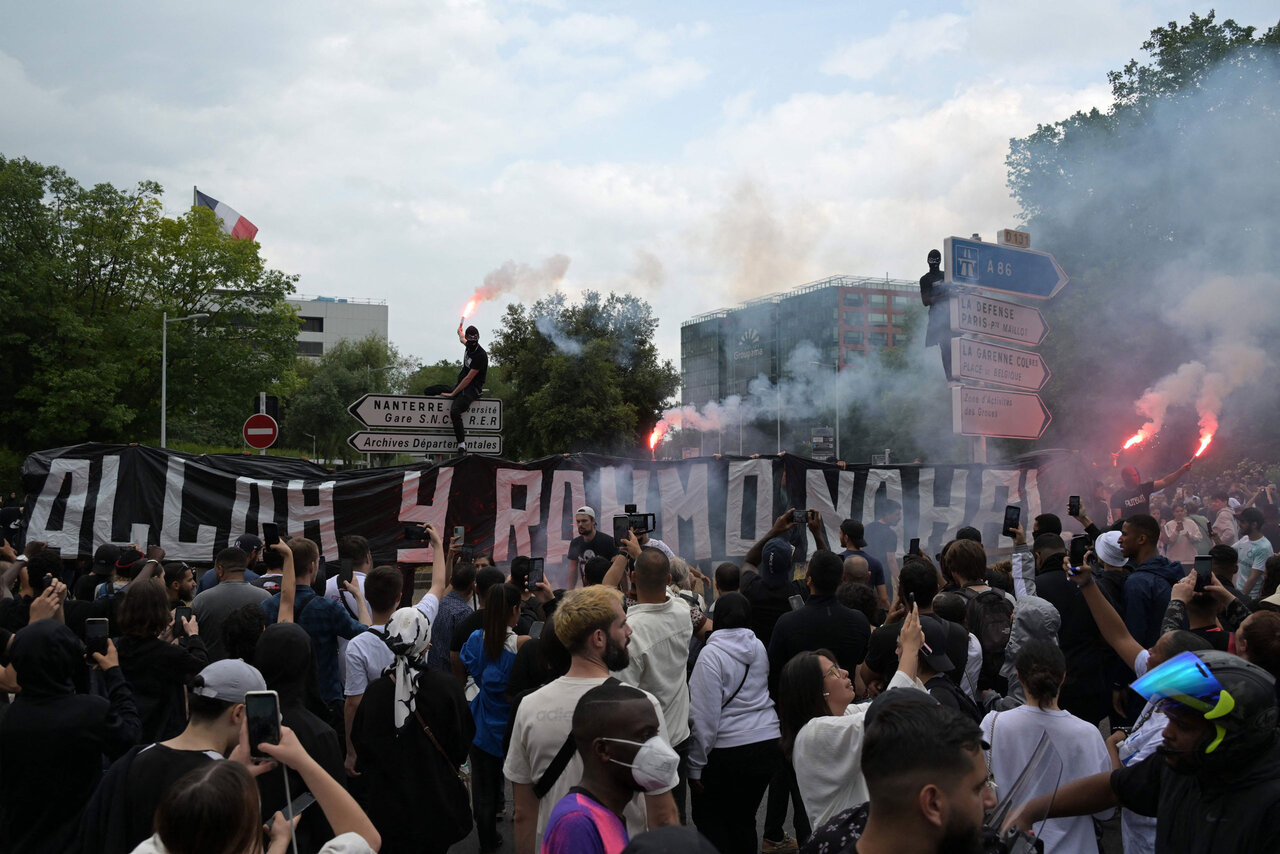Shooting at chronic wound

"That morning, he kissed me and said, 'Mom, I love you.' He went out to buy McDonald's, and I went to work. An hour later, they told me my son was killed by a gunshot." This is the account of the mother of a teenage boy who was killed on Tuesday in the western suburbs of Paris and is scheduled to be buried today, Saturday.
Another death behind the wheel due to police shooting. This is not a new story for the French. This time, the lottery of death was named a 17-year-old boy. The Nahel’s death by direct police shooting has sparked violent protests and riots throughout the country. After 4 days, there is no clear indication of the end of the protests, and many believe that this incident is even more serious than the 2005 riots.
In that year, after two teenagers were electrocuted while hiding from police, France was convulsed in turmoil for three weeks. One important difference is that unlike 18 years ago only the suburbs of major cities were involved in protests, while this time major cities are also burning with the anger of protesters.
Emmanuel Macron, the president of France, who had recently been freed from widespread protests against the new retirement law, sees himself in a difficult situation. The appearance of the situation shows that he is currently trying to take a middle ground. He is not fully cooperating with angry people, nor does he appear to be suppressing them entirely.
Macron's critics say that the current situation is the result of his government's policies on immigrants. They accuse Macron of being lenient on immigration laws and say that France is on the brink of a civil war, and the situation is similar to a jungle rule in the country.
Some French media believe that the teenager’s murder is a product of a law passed in 2017. This law, which was passed after the deadly attacks in 2015 in France, gives the police more power to control drivers, inspect them, and use firearms. Statistics show that after the passage of this law, police shootings of drivers have significantly increased. However, it seems that the root of the events in France these days should be examined somewhat deeper.
The fire and anger burning in France is the product of a combination of several dark realities with high explosive potential. Lower-class teenagers and youths, mostly immigrants and people of color, feel that this incident could easily happen to them. They deeply and increasingly identify with the 17-year-old victim of this tragedy. The next point is a general emotional feeling that has been institutionalized and accumulated in this lower class. Despite all the protests, their voice does not seem to be heard, and apparently, nothing is going to change. They have clear signs of this feeling of frustration. When they were in shock and grief over the unwarranted killing by the police, Macron and his wife were shaking their feet to the rhythm of music at the Elton John concert.
Another issue is systematic racism and high degree of police violence in France to the extent that the police in the country have become famous, at least among the police forces of European countries. Africans and Muslims are the main targets of this aggressive and racist behavior.
Another point that has a fundamental role is France's colonial history, especially in Africa. The wounds of French colonization have not yet been healed. The victim of the unwarranted shooting was of Algerian descent.
1.5 million Algerians were killed during France's colonization of Algeria that lasted for more than 130, and until a few years ago the skulls of Algerian resistance leaders were kept in the Paris Museum of Anthropology.
Although the teenagers in the suburbs of Paris are fourth-generation immigrants of African descent, the heavy shadow of French colonial crimes still weighs heavily on their identity. Attaching the metro line to these poor suburbs does not heal this old wound.
The fire and anger of 2005 ended after three weeks with a state of emergency, travel ban, and imprisonment of those who ignored it. Perhaps the French government can once again use the same tactic to control the fire caused by the unwarranted killing, but this fire will not be extinguished, and it waits for another spark.
Mohammad Sarfi is Editor-in-Chief Tehran Times
Leave a Comment